Forefoot Reconstruction Surgeries and Treatments in Frisco, TX
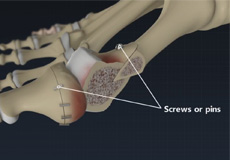
Bunion Surgery or Bunionectomy
A bunion, also known as hallux valgus, is bony prominence at the base of the big toe, which often results in pain, redness and rubbing in footwear. The 1st metatarsal bone abnormally angles outward towards the other foot from its joint in the midfoot. A bunion can change the shape of your foot, make it difficult for you to find shoes that fit correctly and worsen the symptoms if left untreated.
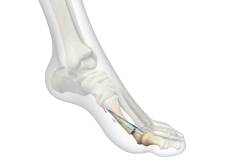
Minimally Invasive Bunion Surgery
If you are considering surgery for a painful bunion, a minimally invasive surgery can reliably address the appearance of the foot as well as the pain associated with the deformity.

Hammertoe
A hammertoe is a deformity of a lesser toe (second through fifth toes), where the toe is bent upward at the toe 's middle joint, resembling a hammer. The bent portion may rub against a shoe causing pain, irritation and development of corns.
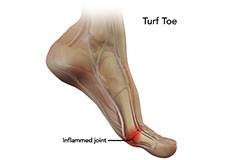
Turf Toe
Turf toe is an injury to the ligament at the base of the big toe. It is a painful condition that usually results from jamming of the toe into the ground or excessive backward bending of the toe. As it is more common in athletes playing on artificial turf, especially those involved in field sports, such as football, baseball and soccer, it is known as turf toe.
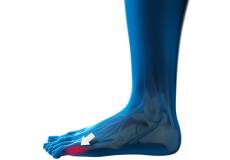
Bunionette Surgery
A bunionette, also known as tailor 's bunion, is bony prominence at the base of the pinky toe, which often results in pain, redness and rubbing in footwear. A bunionette can change the shape of your foot, make it difficult for you to find shoes that fit correctly and worsen the symptoms if left untreated.
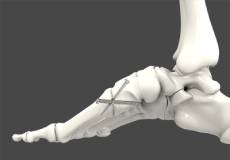
Arthritis Procedures (Fusion)
Midfoot Tarsometatarsal Joint Fusion
Tarsometatarsal joints are the small joints in the middle foot. Osteoarthritis, rheumatoid arthritis or other conditions may damage these joints. The joints may wear out, collapse, cause severe foot deformity and affect the function of the foot.
